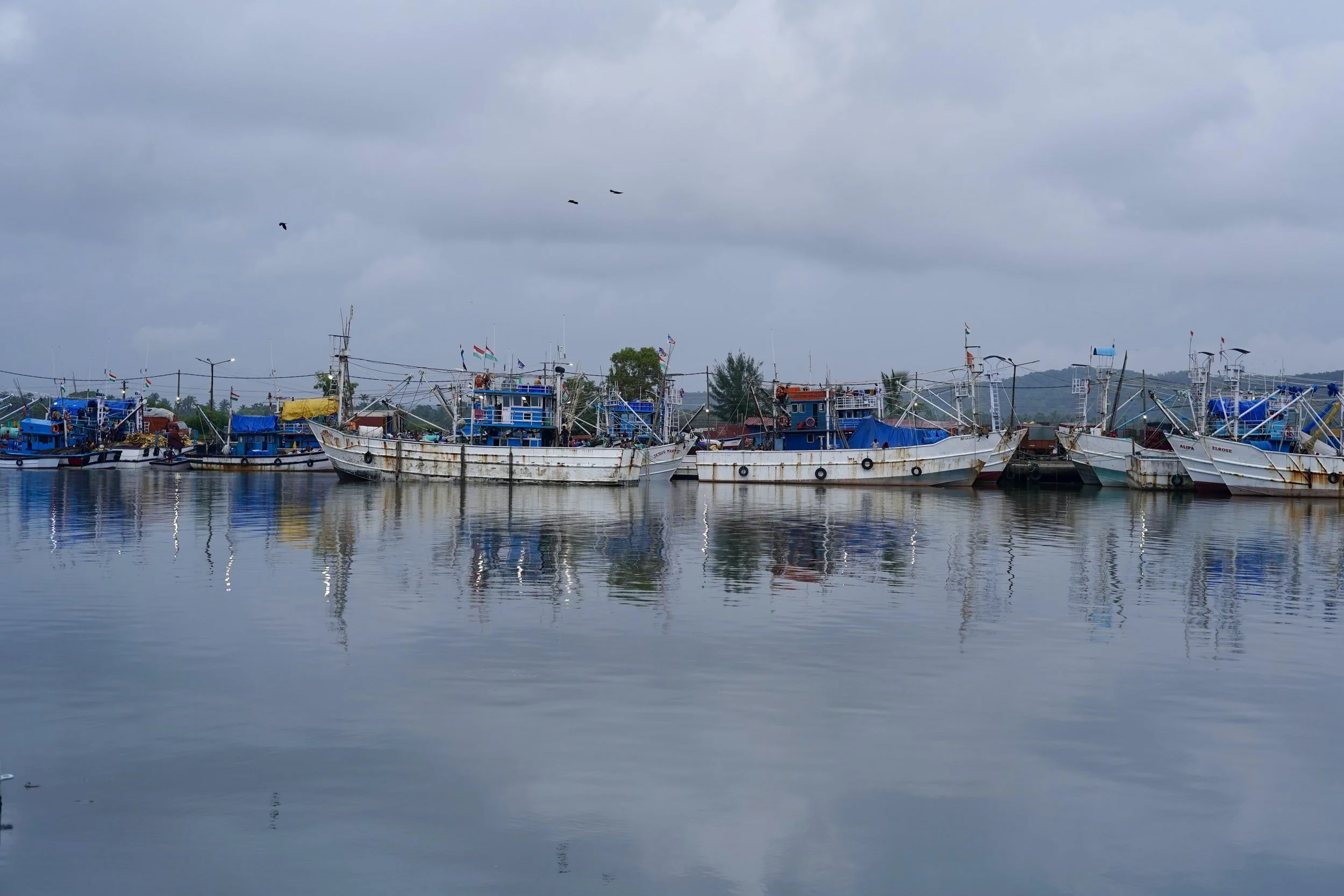Corporate Accountability Lab presentó recientemente a la Jurisdicción Especial para la Paz (JEP) la primera parte de un informe sobre el papel de las empresas multinacionales en el conflicto armado. El informe sirve para apoyar las investigaciones del tribunal de justicia transicional sobre los crímenes cometidos en regiones como el Cesar y el Magdalena Medio a través de asociaciones entre agentes del Estado, paramilitares y "terceros" ("terceros civiles" o "no combatientes"). La última de estas categorías es muy amplia y puede incluir a las empresas.
CAL Provides Evidence of Corporate Complicity in Armed Conflict to Colombian Peace Tribunal
Corporate Accountability Lab recently submitted the first half of a report about the role of multinational companies in the armed conflict to the Special Jurisdiction for Peace (JEP, for its acronym in Spanish). The report serves to support the transitional justice tribunal’s investigations into crimes committed in regions including Cesar and Magdalena Medio through associations between state agents, paramilitaries, and “terceros” (“third party civilians” or “non combatants”). The last of these categories is very broad and can include corporations. The role of all actors–not just combatants–must be reckoned with to achieve justice and sustainable peace in Colombia and beyond.
CAL joins amicus brief supporting victim-survivors of human trafficking in Thai factories serving U.S. seafood market
CAL and 18 other human rights organizations recently filed an amicus brief with the United States Ninth Circuit Court of Appeals in support of the plaintiffs in Keo Ratha, et al. v. Phattana Seafoods, Co. Ltd. et al. (Ratha). The Ratha plaintiffs, Cambodian villagers living in poverty, allege that several US and Thai companies violated US and international law by engaging in a joint venture that relied on trafficked and forced labor of plaintiffs and others to produce shrimp and seafood for export to the US market. The amicus brief, written by Global Labor Justice-International Labor Rights Forum, supports the plaintiffs’ petition for rehearing en banc of a Ninth Circuit decision that would preclude them from seeking redress against the defendants and set dangerous precedent for other victims of trafficking and forced labor seeking justice in US courts.
Organizing against Giants: Workers Assert their Rights at Starbucks, Amazon & Beyond
Since late 2021, worker organizing efforts in the United States have culminated in multiple victories against corporate giants, including the country’s first successful unionizations at Amazon and Starbucks. Even if the broader state of unionization in the US is still bleak, this organization of workers is an important step forward on the road to challenging unsustainable business models designed to profit at the grave expense of workers.
Corporate Accountability Lab reafirma su apoyo a la Comisión Intereclesial de Justicia y Paz y su trabajo en materia de justicia restaurativa y garantías de no repetición
Corporate Accountability Lab (CAL) reafirma su apoyo a la Comisión Intereclesial de Justicia y Paz (CIJP) y su compromiso hacia una paz sostenible en Colombia. En los últimos días, los ataques públicos contra el trabajo de la CIJP han aumentado. La CIJP está siendo falsamente acusada de ofrecer beneficios judiciales a favor de una campaña presidencial. CAL no puede permanecer en silencio ante estos ataques contra uno de nuestros aliados más cercanos en América Latina.
Corporate Accountability Lab reaffirms its support for the Comisión Intereclesial de Justicia y Paz and its work on restorative justice and guarantees of non-repetition
Today, Corporate Accountability Lab (CAL) reaffirms our support for the Comisión Intereclesial de Justicia y Paz (CIJP) and its commitment to sustainable peace in Colombia. In the last few days, public attacks against the work of CIJP have increased. CIJP is being falsely accused of influencing inmates to benefit a presidential campaign. We at CAL cannot remain silent in light of these attacks against one of our closest partners in Latin America.
Major tuna company sued for claiming sustainability while likely relying on forced labor
GLJ-ILRF is suing Bumble Bee under the District of Columbia Consumer Protection Procedures Act (CPPA) on behalf of itself and the general public, in the interest of Bumble Bee consumers in Washington, D.C. GLJ-ILRF, which is represented by Richman Law & Policy, seeks a declaration from the court that Bumble Bee’s practices violate the CPPA and an injunction to prohibit the company from continuing to engage in misleading advertising.
GLJ-ILRF’s claims that Bumble Bee has engaged in false and deceptive marketing are based on the company’s representations about a “fair and safe supply chain,” including that it is “best-in-class” for worker safety standards and “champion[s] sustainable fishing,” despite substantial evidence of forced labor and worker safety violations.
CAL Condemns Russia's War of Aggression & Urges Businesses to Do More—in Ukraine & Elsewhere—for Human Rights
In this post, we examine the swift implementation and shift in the global order that took place since Russia’s invasion, just three weeks ago, on February 24, 2022. We look at how companies have responded and compare the widespread exit from the Russian economy with how companies respond to other human rights violations and humanitarian disasters.
FIFTY YEARS OF CORPORATE EXPLOITATION: THE STORY OF US MINING GIANT FREEPORT & PAPUA’S STOLEN SOVEREIGNTY (PART I)
The Grasberg Copper and Gold Mine, the largest in the world of its kind, is carved out of a mountaintop 14,000 feet above sea-level in the highlands of Papua, Indonesia. In fact, the open-pit mine is so large that the crater can be seen by astronauts in the International Space Station. It is estimated to contain $108 billion worth of minerals, but before the mountaintop was carved up for its wealth, it was the sacred mother of the Amungme indigenous community. They and many other indigenous communities have since been driven from their home by the American mining company and operator of the Grasberg mine, Freeport McMoRan.
Environmental Litigation and Beyond: Lessons for Challenging the Status Quo
Environmental litigation in national courts is increasingly pointing the way toward novel approaches that can be useful in challenging the status quo on behalf of people and the planet. In formulating strategy, activists should consider the factors driving the litigation outcomes, the characteristics of the emerging legal landscape, and the contours of appropriate government regulation and corporate compliance frameworks, taking into account these developments. Although in this blog we focus on lessons from lawsuits in Australia, Germany, the Netherlands, and the United States, lawsuits in the Global South are also instructive strategically.
The Fashion Sustainability & Social Accountability Act: Nothing More than a Consumer Awareness Bill
In January 2022, the New York Assembly unveiled the Fashion Sustainability and Social Accountability Act (FSSAA), a law that purports to change the fashion industry and its role in perpetuating human rights and environmental harm. Such a law is certainly needed; the fashion industry is a massive polluter, accounting for between 2-8 percent of global emissions. The industry employs 75 million people, including workers in all parts of the supply chain and in countries throughout the world – many of whom are vulnerable and exploited.
But is this law really as powerful and “historic” as the New York Times claimed? No. After careful analysis, we believe that while we would rather see it pass than fail, there are some major flaws that weaken it. This law will not be a game-changer; at best, it will provide a little bit more transparency in supply chains, a positive but small step in the right direction. At worst, it will stop other pushes for legislation that would actually provide remedy to workers and incentivize changes in supply chains beyond disclosure.
SFC v. Vizio: Third-Party Beneficiaries in Open Source Software Licenses?
Most of us do not care how software runs, whether that software is on our computers, our televisions, or our toasters - we just need it to work. However, part of the reason open source software has expanded is because it's in an ecosystem where developers and maintainers are trying to look at the code, use it, modify it, improve it, and even redistribute it. In fact, this concept is so integral to open source software, that many open source software licenses demand that any projects derived from licensed work also be open source, and allow others to use it, copy it, modify it, and distribute it. So, if a company does not adhere to the terms of the license, can you, as a consumer who should have the ability to view the source code of your smart appliances, sue them for breach of contract? If you can, what does that mean for open source software licenses, including ethical open source software licenses, going forward?
Corporate America's Empty Promise to Defend Democracy
One year ago today, on January 6, 2021, after thousands of deceived Americans violently overtook the U.S. Capitol and delayed a critical procedural step in the peaceful transition of power, waves of corporations issued statements condemning the violence and promising to “reevaluate” their political alliances by ending donations to leaders of the insurrection. Many of these public pledges were then broken in less than 3 months.
International Mission in Colombia Identifies Corporate Complicity in Abuses Against Protestors
Six months after the National Strike erupted in Colombia, impunity continues for human rights violations committed against protesters. Over the summer, CAL participated in Mission SOS Colombia, an international mission to observe and report on the government’s response to widespread social protests and conditions that protesters were facing. This post highlights the Mission’s key findings on excessive use of force by state actors and harms committed by corporations in the context of the protest. More information is available in the Mission’s report in Spanish.
Export Controls and Human Rights
Corporate Accountability Lab has been working on blocking imports into the United States of goods produced using forced labor, relying largely on Section 307 of the Tariff Act of 1930. This blog looks at possibilities for using controls on exports as a way of advancing human rights. The human rights issues here do not center on how goods were produced; they center on how goods are likely to be used. Recent statements joined by the United States emphasize the need to be proactive in ensuring that advanced technologies are not used for such purposes as state-sponsored, repressive cybersurveillance. The technologies at the heart of this effort include artificial intelligence and advanced surveillance technologies (e.g., facial recognition technologies).
No More Safe Harbors: The International Need for Import Prohibitions on the Products of Forced Labor
Across the globe, an estimated 25 million people work in conditions of forced labor. In many of these cases, the private companies that supply the cotton, cocoa, and coffee we use every day directly benefit by producing and buying goods at lower costs.
Legal prohibitions on importing goods produced with forced and prison labor authorize customs and border officials to block goods from entering major markets, a strong incentive for companies to clean up their supply chains. Import prohibitions can fundamentally challenge companies’ profit models and thus their behavior: with the ability to sell goods in a country at risk, a company’s incentive to cut costs by using forced and prison labor drops drastically.
Enbridge and the Dangers of Extractive Industry-Police Alliances
Last month, The Guardian revealed that Canadian pipeline company Enbridge has paid Minnesota police more than two and a half million dollars for services including the surveillance and arrest of Water Protectors resisting the company’s construction of a new Line 3 pipeline. This post situates the Enbridge-police agreement in Minnesota and violent crackdown against Water Protectors at Line 3 within a disturbing global context rooted in colonialism.
Google Breaks Its Promise On A.I.—Ethical IP Licensing Would Have Made That Very Hard To Do
Three years ago, we blogged about the successful campaign by Google tech workers to persuade the company to withdraw from Project Maven—a United States Department of Defense program aimed at using artificial intelligence (A.I.) to rapidly analyze and identify drone targets. More than 4,000 Google employees signed a letter to Google’s CEO, Sundar Pichai, demanding that Google “not be in the business of war.” The internal revolt worked: Google declined to renew its contract for Project Maven and published a set of A.I. principles—including a vow that no future A.I. endeavor would be used for “weapons…whose principal purpose or implementation is to cause or directly facilitate injury to people.”
Introducing Our New Special Advisor Dean Pinkert
CAL is excited to introduce our newest staff member, Dean Pinkert. In this introductory blog, Dean discusses his background and what led him late in his career to join CAL and focus on international human rights and environmental sustainability.
Dean is highly motivated to “give back” after having achieved his goals in private practice and in government. He takes this to mean embracing a wider agenda--leveraging the law to advance global human rights and environmental sustainability--as well as serving as a resource for CAL colleagues and allies.
CAL files suit against Hershey and Rainforest Alliance
Corporate Accountability Lab (CAL) is excited to announce that on October 27, 2021 we filed suit against Hershey and the certification scheme Rainforest Alliance in a consumer protection case in Washington, D.C. Superior Court. CAL, as the plaintiff in the case, is suing the defendants -- Hershey and Rainforest Alliance -- for false and deceptive marketing representations on certain Hershey chocolate products. We are bringing suit under the Washington, D.C. Consumer Protection Procedures Act (“CPPA”), a consumer protection statute that allows public interest organizations like CAL to sue on behalf of the general public.























